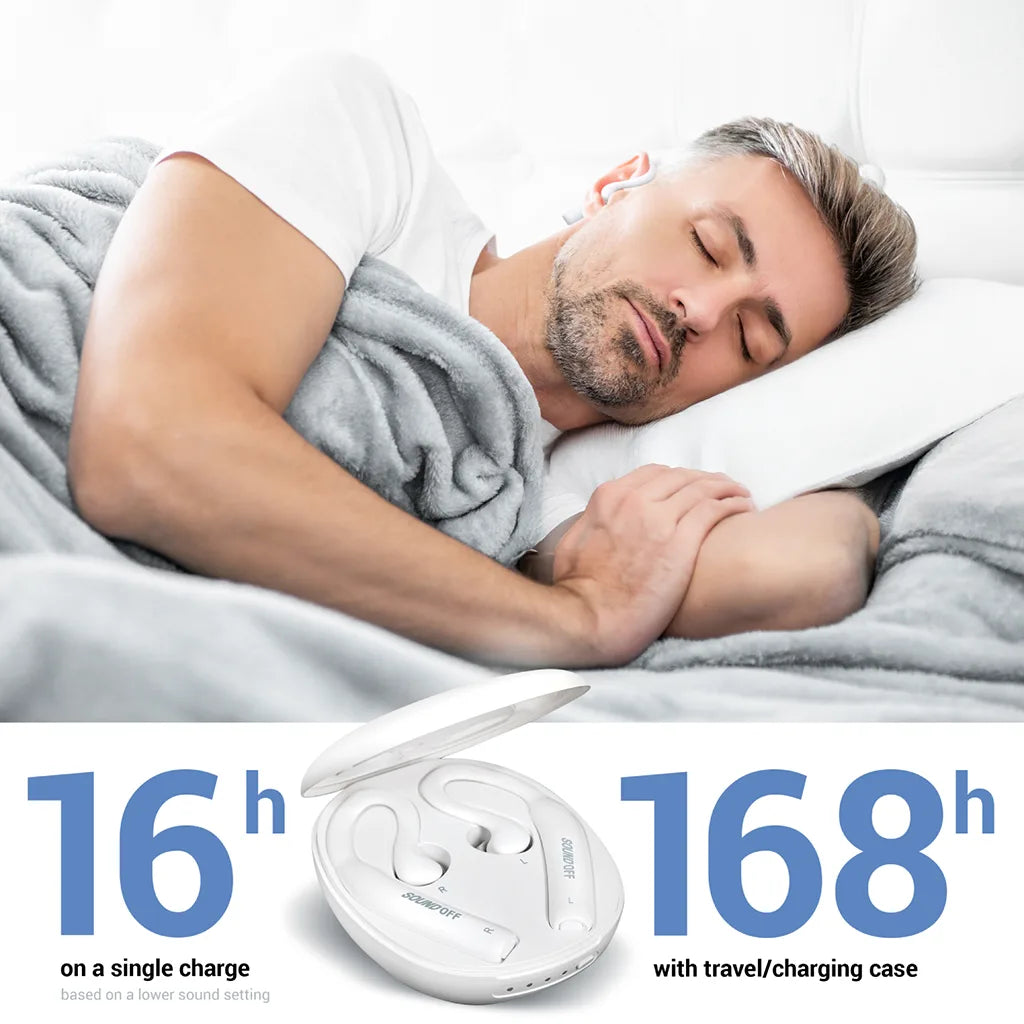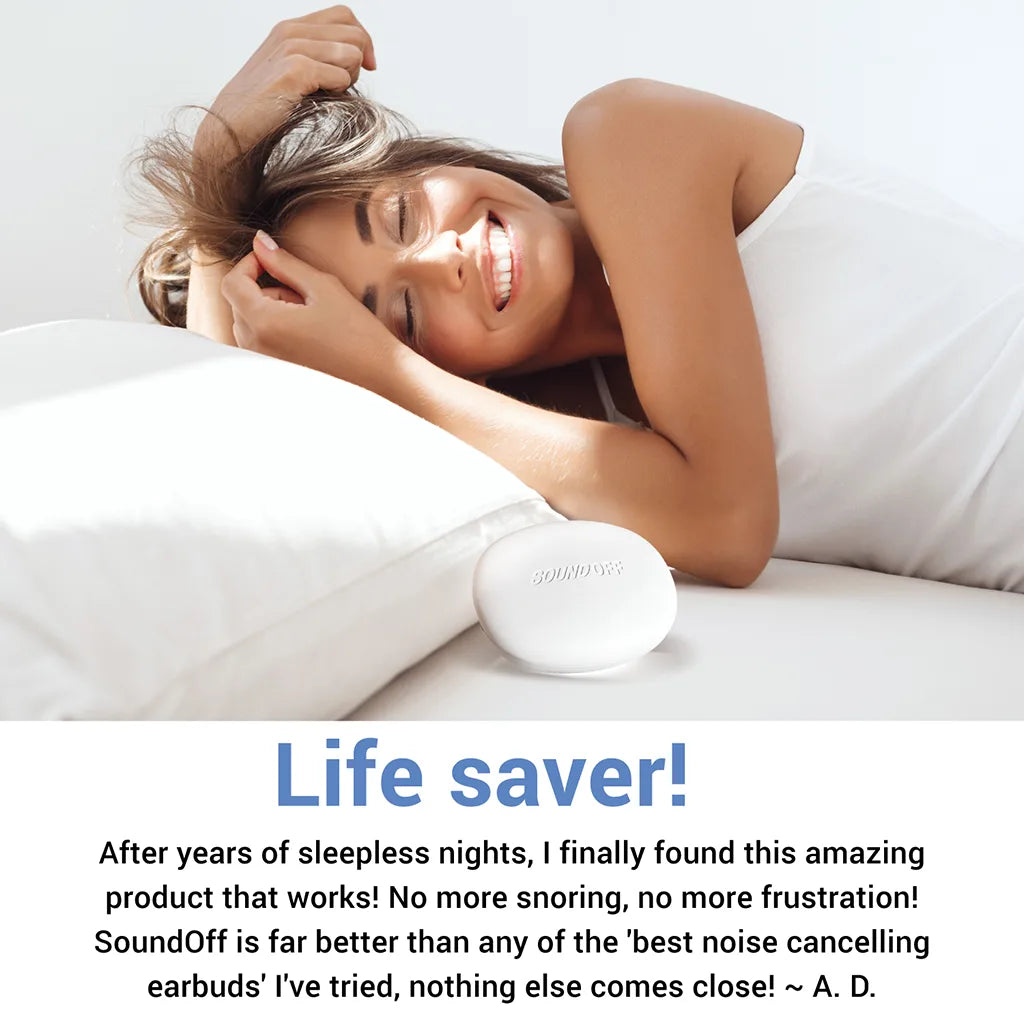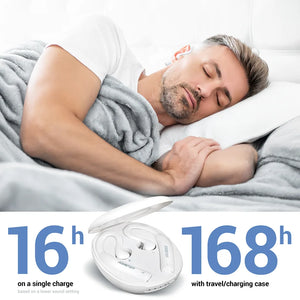
Introduction
If you don’t get enough sleep, you’re not only going to be tired the next day, but you run the risk of far more serious health issues if your sleeplessness continues.
You may have experienced some of the more well-known sleep deprivation effects, like daytime fatigue, lack of focus, clumsiness, reduced performance, and accident-proneness.
These are just the tip of the iceberg for people who experience chronic sleep deprivation. The long-term effects can be health-threatening, dangerous, and even deadly.
There are a host of health issues associated with sleep deprivation, whether snoring is involved or not. Snoring itself can lead to heart disease or obstructive sleep apnea either of which can be fatal. But other sleep problems exist, too, and they lead to a myriad of life-altering behaviors.
Here are some of the health consequences that researchers have found that related directly to sleep deprivation, many of which can be very dangerous.
Sleep Deprivation Effects
High Blood Pressure
Studies in sleep medicine have shown that lost sleep can provide a 20-percent increase in the chances of hypertension or high blood pressure. It was found that even one night of acute sleep loss can lead to spiked blood pressure in healthy young men.
Cardiovascular Disease
From studies in the European Heart Journal,research has shown that nights of shortened sleep (less than 6 hours) can lead to significant heart disease. Loss of sleep can lead to a 48-percent increase in the chance of cardiovascular disease and double the chance of dying from coronary heart disease.
Diabetes
Research from the University of Chicago showed that even a few nights’ loss of sleep can interfere with the body’s ability to control blood-sugar levels, and this in turn can lead to developing Type 2 Diabetes.
Stroke
Many people live busy lives and have pressure-filled occupations. This fast-paced lifestyle is more susceptible to heart issues like stroke. Good sleep is essential for these people to maintain their health. Research at the University of Alabama found that, when busy people did not get good sleep, 30-percent of them increased their chance of stroke by 400 percent.
Increased Obesity
Chronic sleep loss leads to a breakdown in the body’s regulation of metabolism and appetite control. This in turn leads to increased obesity and to higher chances of diabetes. One study discovered that healthy women who were sleep deprived consumed over 300 more calories than normal the next day. It was determined that each hour of lost sleep contributed to an increase in body mass index (BMI).
Decreased Cognitive Ability
A study at the Chicago Medical Institute concluded that sleep deprivation could be a factor in mental illness including psychosis and bipolar disorder. A similar study at Harvard Medical School and the University of California at Berkeley showed that sleep deprivation interferes with the brain’s ability to manage emotions.
For sleep-deprived people, the brain has trouble putting an emotional event into the right perspective and also has difficulty making a suitable, controlled response to an emotional event.
Because of sleep deprivation, the reasoning part of the brain (prefrontal cortex) has difficulty controlling the emotional part (amygdala). Other effects include difficulties in memory development and learning.
Nightmare Disorder
Almost everyone has a nightmare now and then. This is not unusual. But when they happen often and in fact almost regularly, they can become a terrifying nightmare disorder. The situation develops many times from being overtired or being stressed out. Nightmares occur during REM sleep. The person wakes in a cold sweat with feelings of anxiety and frightening memories.
Coming home from watching a horror movie might make you look under the bed or keep the lights on a little longer. But you shouldn’t have lasting effects of that experience. If you do, you may want to seek counseling for possible nightmare disorder.
Nighttime Terrors
Nighttime terrors are similar to nightmares except they do not occur during the deep, REM phase of sleeping. They occur earlier in the sleep cycle. The person might appear awake with eyes open, and may be screaming.
Sometimes the person with nighttime terrors gets up and somnambulates. Nighttime terrors can combine with sleepwalking to make a particularly frightening experience.
Sleepwalking
Occurring mostly in children but in adults as well, sleepwalking may be the result of stress or some other sleep disorder. It can also be genetic with a parent or other close relative having experienced it as well. In the case of genetics, a person has a much higher chance of sleepwalking than normal sleepers.
Sleepwalking is normally not dangerous, and the sleepwalker usually returns to bed within a short time, but there have been reports of sleepwalkers who do get injured. Young sleepwalkers have been known to go outside where danger increases. They do tend to outgrow sleepwalking by their teen years.
Hallucinations and Narcolepsy
Just as a person is falling asleep or just waking up is the time of transition and the most likely time a person will have hallucinations. These people can have visions; see things that aren’t there, and hear things that don’t exist.
Hallucinations can be related to narcolepsy. Narcolepsy is a chronic brain disorder that involves poor management of sleep cycles. People with narcolepsy can have sudden daytime urges to fall sleep at almost any time – while walking, conversing, while at work, or operating machinery or driving a car. It can be extremely dangerous to the person with the disease and also to other people nearby.
Narcolepsy can also involve cataplexy, the sudden loss of muscular control during the day that makes a person go limp. And it can involve sleep paralysis which occurs during that transition of going to sleep or waking up.
Other Consequences
These are just some of the more well-researched outcomes of sleep deprivation. But there are many more consequences as well. Students who are sleep deprived will probably have academic problems. More sleep generally means better grades.
Sleep deprivation raises havoc with Circadian Rhythms and interferes with normal DNA processing, metabolism, and body immunity.
Lack of sleep can lead to nocturnal eating disorders and if it becomes serious enough, to insomnia where sleeping is almost impossible.
In addition to a myriad of health issues, which in themselves can be fatal, sleep deprivation can also lead to accidents and loss of life. The National Highway Traffic Safety Administration estimates that sleepy drivers cause more than 100,000 car crashes and 1,550 deaths each year. Sleep deprivation is a serious threat not only to individuals but to family, friends, relatives and society.
It is important to first understand why you are experiencing sleep deprivation. If it is not because of a medical issue like insomnia or narcolepsy, there could be a simple fix. Maybe you are losing sleep because of a noisy neighbor or a snoring sleeping partner. Or maybe it is something as easy as switching around your sleeping position. If you are not able to figure out a cause for the sleep deprivation effects you are feeling daily, consult a medical professional about your options.































